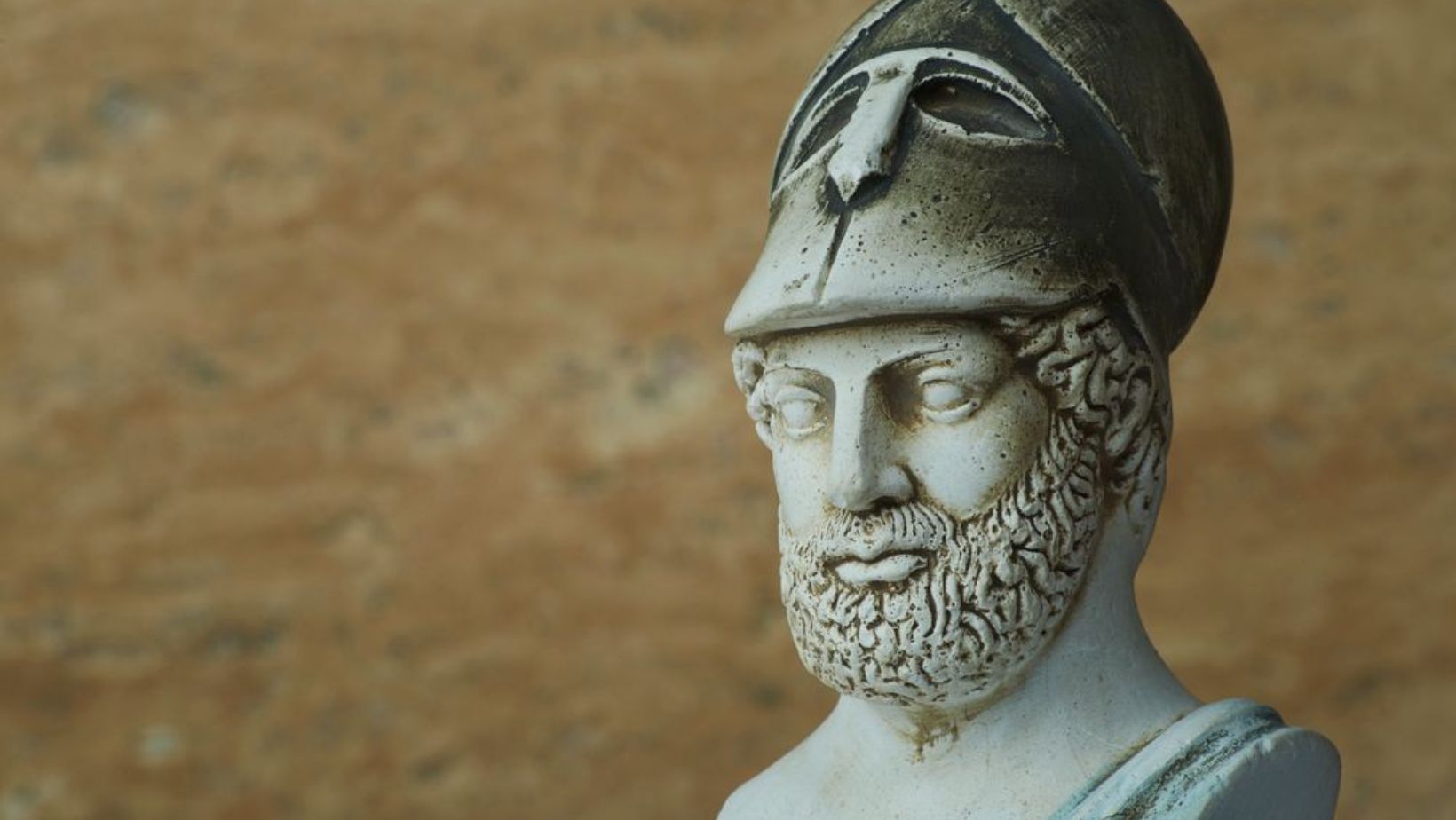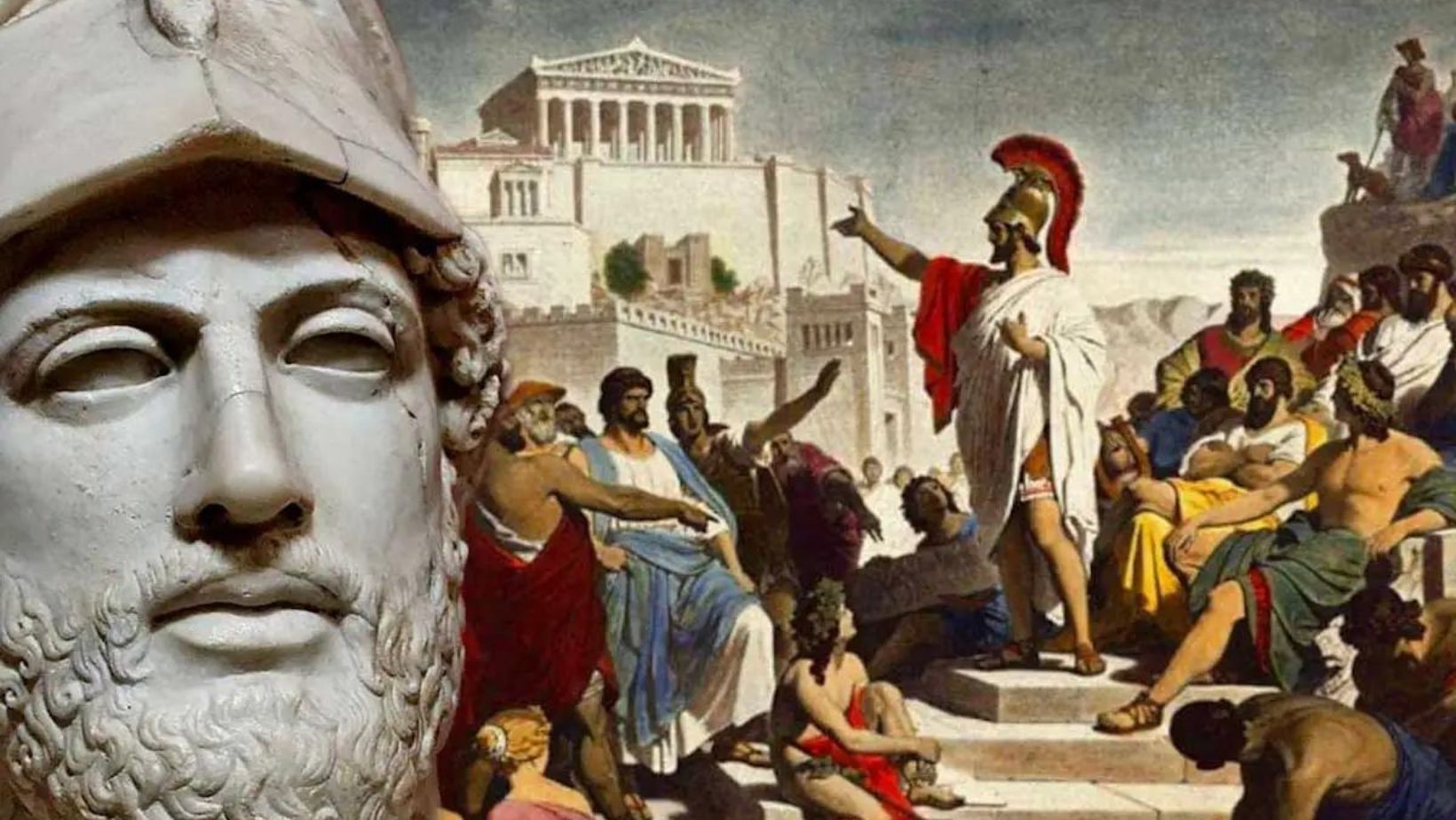When we think about the foundations of democracy, few sources are as rich and compelling as Pericles Speeches. These aren’t just historical documents; they’re blueprints for participatory governance that have echoed down through millennia. In 431 BCE, amidst the backdrop of war and societal strife, these words weren’t merely spoken—they were etched into the very soul of Athens.
The wisdom contained within Pericles’ addresses transcends time, offering us a lens to examine our own systems of government and public participation. But what makes these ancient Greek discourses stand out? Why do scholars and enthusiasts alike turn to them with such reverence?
Table of Contents:
- Pericles’s Funeral Oration: The Greatest Speech of All Time
- Pericles’s Praise of Athenian Democracy
- The Virtues and Values of Athens
- Pericles’s Call to Honor the Fallen
- The Enduring Legacy of Pericles’s Funeral Oration
- Conclusion
Pericles’s Funeral Oration: The Greatest Speech of All Time

In 431 BCE, the Athenian statesman Pericles delivered one of the most influential speeches of all time, his “Epitaphios” or Funeral Oration.
This was no ordinary eulogy. It was a defining moment in history.
The occasion was the funeral of the first Athenian soldiers to lose their lives in the Peloponnesian War.
But Pericles saw an opportunity. A chance to inspire, unite, and define what made Athens great.
In the greatest speech of ancient times, he praised Athenian democracy, culture, and values—the ideals for which these men had died.
Key Themes: Pericles Speeches
Pericles extolled equality before the law, active participation in government, openness, and tolerance. He highlighted the bravery and sacrifice of the fallen.
But above all, he painted a picture of Athens as a shining city upon a hill. A model for all of Greece in its greatness.
Lasting Impact
The historian Thucydides, who witnessed the speech, recorded Pericles’ words for posterity.
They would echo across the ages, informing subsequent epoch-making orations from Lincoln at Gettysburg to Kennedy and Obama.
Pericles’ Funeral Oration remains a timeless monument. A tribute to the glory that was Greece and the grandeur that was Athens.
Pericles’s Praise of Athenian Democracy: Pericles Speeches
Pericles was a master orator, and he knew his audience. He appealed to the assembled Athenians’ pride in their unique democratic system.
Equality Before the Law
“If we look to the laws,” Pericles declared, “they afford equal justice to all in their private differences.”
In Athens, a man’s social standing or class could not interfere with justice. Even the poor could serve the state.
What mattered was individual merit and ability. Not wealth or rank.
But Athenian equality went beyond the courtroom. It extended to the public sphere.
“Our ordinary citizens,” Pericles boasted, were “fair judges of public matters.”
Discussion and debate were not seen as obstacles to action but as necessary preludes to wise decisions. Every Athenian was expected to take an active role in civic life.
Tolerance and Openness: Pericles Speeches
Pericles also praised Athenian openness.
The city welcomed visitors and ideas from abroad. It did not fear to expose its own ways to outside influence and scrutiny.
He proclaimed, “We throw open our city to the world.” Athens was confident in its values and unafraid of comparison.
Pericles painted a picture of an open, dynamic society that embraced freedom, diversity, and progress—a model for the rest of Greece and for the ages.
The Virtues and Values of Athens: Pericles Speeches
For Pericles, Athens was more than just a city. It was an ideal, a way of life. And he sought to capture its essence in his Funeral Oration.
First and foremost, Pericles celebrated Athenian courage. The fallen soldiers had displayed the ultimate bravery, sacrificing their lives for their city.
But this courage was not unique to them. It was part of the national character, fostered by a culture that valued honor and duty above all.
Athenians did not shrink from danger or hardship. They faced challenges head-on with a joyful and determined spirit.
Love of Beauty and Wisdom
But Athenians were not just warriors. They were also lovers of beauty and seekers of wisdom.
“We cultivate refinement without extravagance and knowledge without effeminacy,” Pericles declared.
The Athenian ideal was balance and moderation. Aesthetics and intellect were prized, but not at the expense of strength and valor.
Balance of Work and Leisure: Pericles Speeches
This balance extended to Athenian life as a whole. Citizens were neither slaves to toil nor to pleasure.
“We give our obedience to those whom we put in positions of authority, and we obey the laws themselves, especially those which are for the protection of the oppressed, and those unwritten laws which it is an acknowledged disgrace to break,” Pericles explained.
Work and responsibility were tempered by leisure and enjoyment. The Athenian way of life was one of harmony and balance in all things.
Pericles’s Call to Honor the Fallen
Having praised Athens and its values, Pericles turned to the occasion at hand. The eulogy for the fallen soldiers.
“They gave their lives to protect ours,” Pericles reminded the crowd. The dead had made the ultimate sacrifice for the greater good.
It was a sacrifice worthy of eternal honor and remembrance. A testament to the Athenian spirit of service and selflessness.
Immortal Glory: Pericles Speeches
But Pericles promised more than just honor. He offered immortality.
“For heroes have the whole earth for their tomb,” he declared. “In lands far from their own, where the column with its epitaph declares it, there is enshrined in every breast a record unwritten with no tablet to preserve it, except that of the heart.”
The fallen would live on forever, not just in stone or memory, but in the hearts of all who heard their story. Their glory would be eternal.
Inspiration for Future Generations
This was Pericles’ ultimate goal. Not just to honor the dead but to inspire the living.
“You, their survivors, must determine to have as unfaltering a resolution in the field, though you may pray that it may have a happier issue,” he urged.
The example of the fallen must spur their comrades to even greater heights of courage and sacrifice. Their story must be passed down to future generations as a model of Athenian valor.
In death, the fallen soldiers achieved the pinnacle of glory. But their true legacy would be to inspire others to live up to their example and strive to be worthy of the city for which they had died.
The Enduring Legacy of Pericles’s Funeral Oration: Pericles Speeches

Over two millennia later, Pericles’s words still resonate. His Funeral Oration remains a powerful celebration of democracy, civic duty, and the eternal glory of those who give their lives for their country.
Influence on Western Rhetoric
Pericles’s speech set a new standard for oratory. Its masterful blend of emotional appeals, vivid imagery, and soaring language would influence generations of speakers and writers.
Thucydides’ account of the oration would become a model for future historians and rhetoricians. Its power and grace would echo through the works of Cicero, Lincoln, and countless others.
But the Funeral Oration is more than just a rhetorical masterpiece. It is a timeless meditation on the rights and responsibilities of citizenship in a free society.
Pericles’s vision of an engaged, active citizenry that participates fully in public life and puts the good of the community above narrow self-interest remains as relevant today as it was in ancient Athens.
His words are a powerful reminder that democracy requires constant effort and sacrifice and that true citizenship means taking an active role in shaping the destiny of one’s city or country.
Relevance in Modern Times
Pericles’s message is more urgent than ever in an age of growing cynicism and apathy towards politics and public service.
His Funeral Oration is a clarion call to civic engagement and responsibility, a reminder that the blessings of liberty and democracy are not free but must be earned and defended by each generation.
As one modern commentator put it, “Pericles’ funeral oration remains a poignant reminder that all things come at a cost. And while we might enjoy several luxuries within our own lifetime, there are often those who suffer selflessly on our behalf, falling again and again under the blows of outrageous fortune so that we might live contently, peacefully.”
This is the enduring legacy of Pericles’s words. They are not just a monument to Athens’ glory but a challenge to all of us to live up to our highest ideals and honor the sacrifices of those who came before us.
Key Takeaway: Pericles Speeches
Pericles’s Funeral Oration isn’t just a tribute to fallen soldiers; it’s a powerful call to honor democracy, civic duty, and the values that make society great. His words inspire us to actively participate in our communities and remind us of the sacrifices made for our freedoms.
Conclusion: Pericles Speeches
As we’ve journeyed together through the heart of Athenian democracy via Pericles speeches, it’s clear these were no ordinary talks. They lived by principles that are the foundation of today’s democracies—showing bravery when things got tough, staying honorable while serving others, and, most importantly, putting the group’s needs before their own wants.
This exploration reveals more than historical curiosity; it unveils timeless lessons on leadership and citizenship still relevant today. As you step away from this read,
remember: while technology changes landscapes at an ever-accelerating pace,
the core principles laid out by Pericles remain guiding stars toward
a society built on fairness, respect for one another, and unwavering dedication to communal prosperity. We don’t need robots telling us how important those values are; history has been doing so quite eloquently since ancient times.

